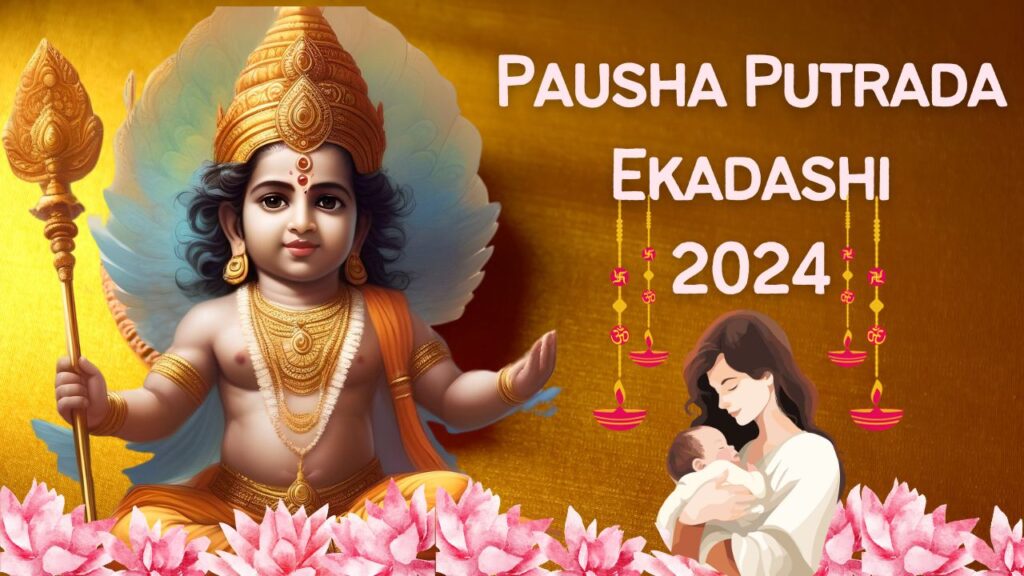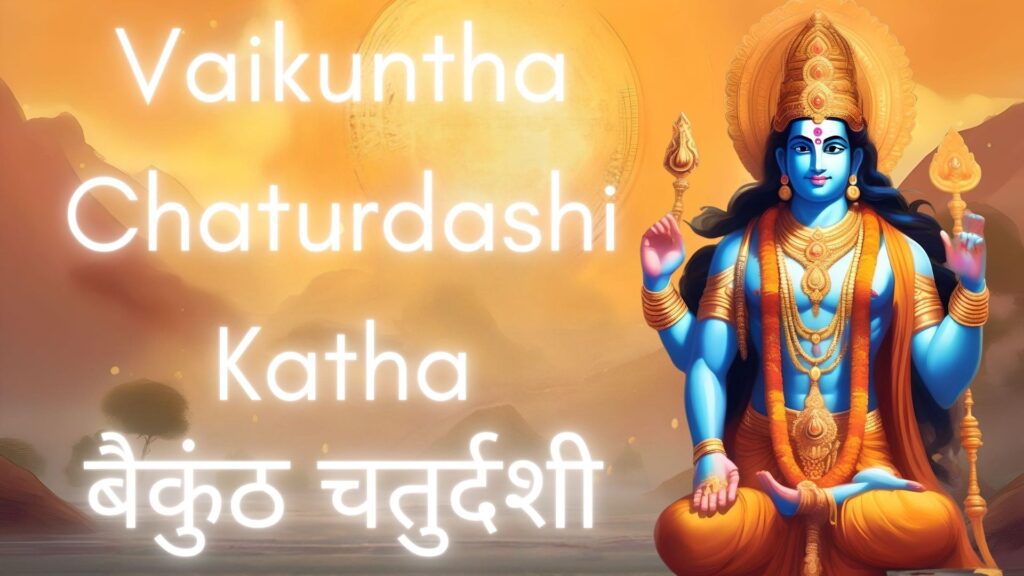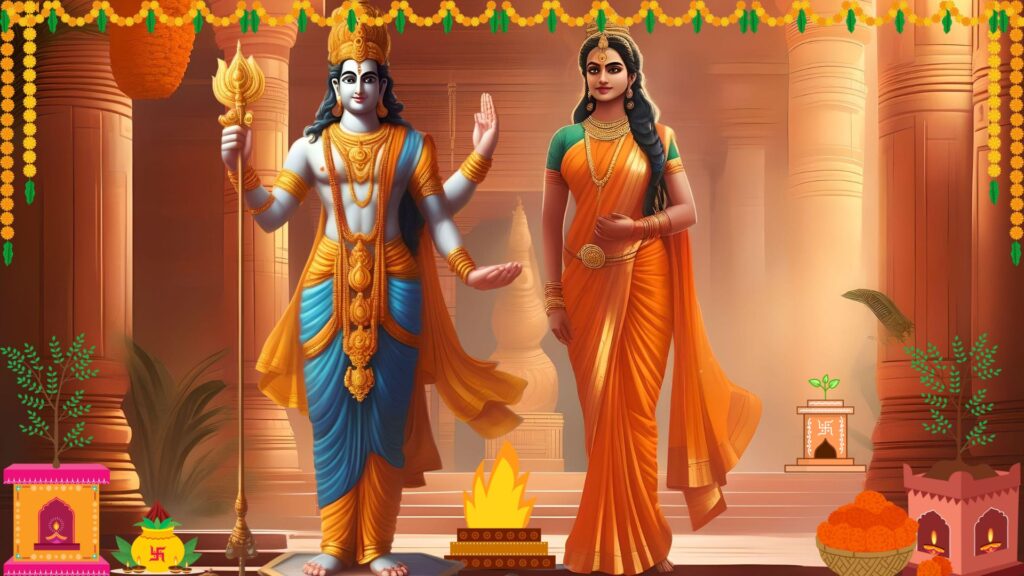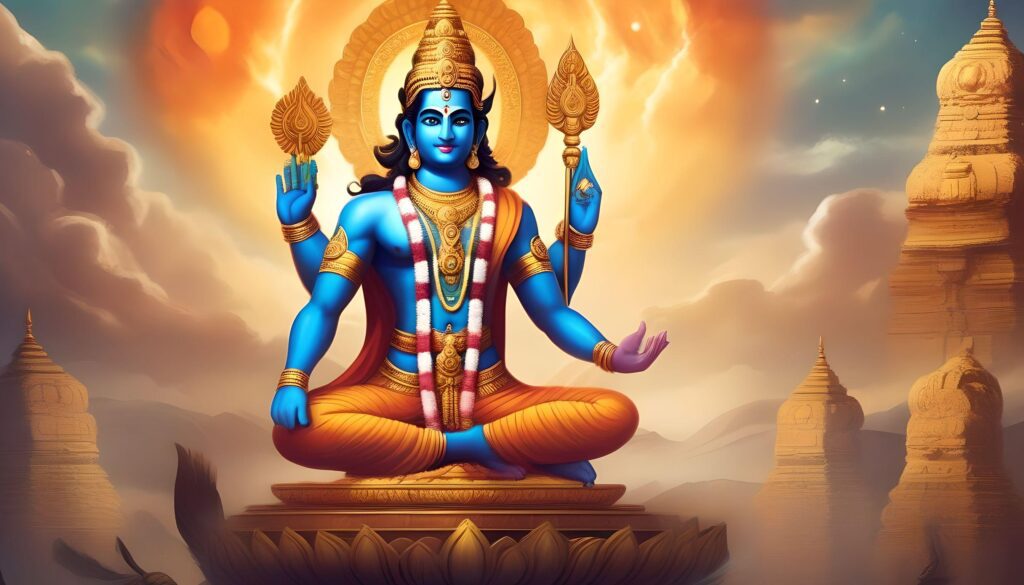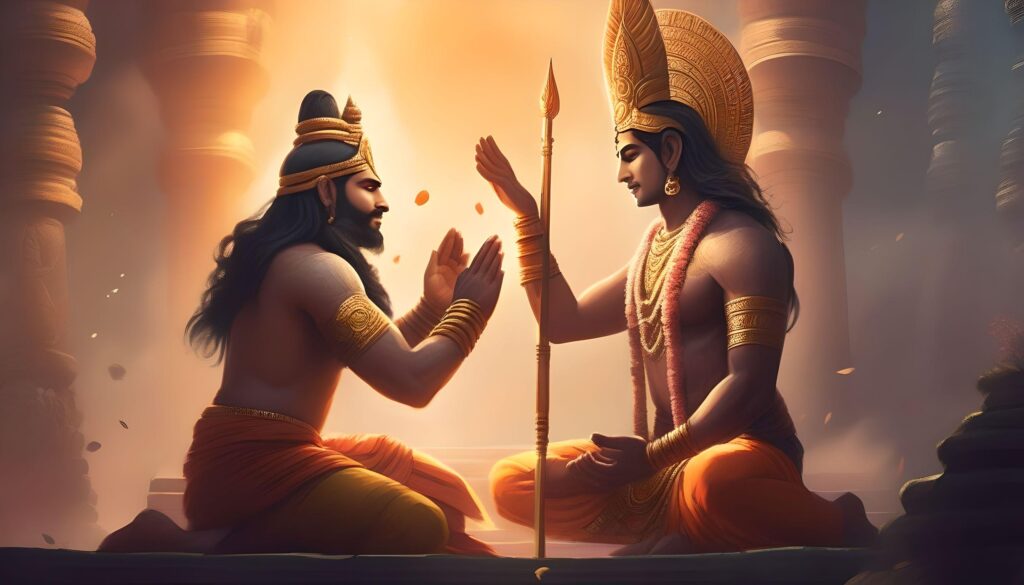Pausha Putrada Ekadashi: Auspicious Day to be blessed with a Child
The Pausha A revered Hindu festival, Putrada Ekadashi is observed on the eleventh lunar day of the bright fortnight in the month of Pausha, usually in December or January. This day is of the utmost significance to couples who are striving to have children. The name “Putrada Ekadashi,” whose literal translation is “ekadashi that bestows sons,” represents the satisfaction of a longing for male progeny. To gain the favor of Lord Vishnu, the cosmic guardian, devout individuals engage in religious observances such as fasting, petitioning, and religious rituals.
Legends of Pausha Putrada Ekadashi
The ancient Hindu scriptures contain a captivating account of the Pausha Putrada Ekadashi. The narrative centers on King Suketuman and his consort, Shaivya, who were in charge of the affluent kingdom of Bhadravati. Despite their considerable wealth and status, the couple were beset by the absence of children, specifically a son who would succeed them. Apprised with sorrow, the monarch resolved to seek sanctuary in the forest.
During the course of his expedition, King Suketuman came across a community of sages residing in close proximity to the serene margins of a lake. He sought solace from the wise ones, conveying his deep distress and desire for the progeny of his lineage. The monarch was advised by the sages to observe the sacred fast of Putrada Ekadashi in order to invoke the graces of Lord Vishnu and secure the fulfillment of his desire for a child.
Following the counsel offered by the wise individual, the monarch diligently observed the fast on the auspicious day of Pausha Putrada Ekadashi. Due to his profound sincerity and unwavering devotion, Lord Vishnu granted the monarch and queen the gift of a son. The royal couple and their predecessors were ecstatic to learn that their child had been born, as it announced the continuation of the family lineage and the commencement of ancestral rituals.
Rituals and Observances
Fasting and Prayer
On the day of Pausha Putrada Ekadashi, devotees observe a rigorous fast to implore Lord Vishnu to grant them a son. While women are the prevalent participants in this fast, both spouses are permitted to partake. Throughout the fast, which generally endures for twenty-four hours, no food is consumed. Certain devotees observe a Nirjal fast, during which they refrain from consuming food and water. On the other hand, Phalhari or Jala Vrats entail the sole consumption of fruits or water.
Worship of Lord Vishnu
The primary focus of Pausha Putrada Ekadashi is the adoration of Lord Vishnu. Devotees immediately enter a purifying bath upon awakening in the morning. A designated area of their residences is then embellished with flowers and incense, and an idol or photograph of Lord Vishnu is installed. The luminous yellow or red garments donning by the deity symbolize abundance and good fortune.
As offerings to Lord Vishnu, a variety of delicacies, including candies and vegetables, are presented. Devotees manifest their veneration through the recitation of Vishnu mantras, such as the Gopal Mantra, and active participation in aarti, an elaborate ritual involving the symbolic waving of lanterns. Bhajans, which are devotional melodies chanted in veneration of Lord Vishnu, constitute an additional widely observed practice.
Prohibited Activities
On the day of Pausha Putrada Ekadashi, there are particular actions that are considered detrimental and should be avoided. On this sacred day, anger, theft, dishonesty, and gambling are all prohibited. It is advisable that followers maintain a composed and harmonious demeanor, refraining from engaging in any harmful or unfavorable behavior.
Visiting Temples
During the Pausha Putrada Ekadashi, devotees pay frequent visits to temples dedicated to Lord Vishnu. The adornment of these sanctuaries with flowers and decorations generates a festive atmosphere. Such temples organize bhajan kirtans (devotional singing sessions) and special puja ceremonies, providing devotees with the opportunity to approach Lord Vishnu in deep reverence and seek his blessings.
Significance of Pausha Putrada Ekadashi
Fulfilling the Desire for a Child
In search of a son, the Pausha Putrada Ekadashi holds significant significance for married couples. Sons are held in high regard within Hindu society due to the expectation that they will fulfill the crucial ancestral duties and provide geriatric care for their parents after their demise. There is a belief that through the observance of Pausha Putrada Ekadashi, one can appease the divine bounties of Lord Vishnu and conceive a son who embodies virtue and good health.
Purification and Redemption
It is believed that Pausha Putrada Ekadashi bestows spiritual absolution and purification on its devotees for transgressions of the past, in addition to gratifying the desire for offspring. By means of fasting, prayer, and worship, adherents of the faith strive to achieve absolution and redemption for their transgressions, thus paving the way for an upcoming era marked by virtue and prosperity.
Spiritual Significance
In conjunction with material prosperity, Pausha Putrada Ekadashi signifies a day of profound spiritual growth and devotion. Devotees strengthen their spiritual connection with Lord Vishnu through diligent observance of religiously prescribed rituals, including prayer, fasting, and fasting. The day functions as a poignant reminder of the paramount importance of faith, devotion, and virtue along the path to enlightenment.
Conclusion
The religious significance of the Pausha Putrada Ekadashi is considerable among married couples who are anxiously awaiting the birth of their son. Devotees assemble under the instructions of Lord Vishnu with the purpose of fulfilling their aspirations by engaging in fasting, prayer, and veneration. The strict observance of the ritualistic procedures and the folklore linked to this fortunate day provide substantiation for a profound belief in the efficacy of devotion and the benevolence of the deity tasked with protecting the cosmos. During the observance of Pausha Putrada Ekadashi, devotees undertake a spiritual odyssey in addition to their desire for the bestowal of a son. Their aim is to achieve spiritual development and purification. Those who observe this day with sincerity and devotion may be bestowed with good fortune and favor.
#Ekadashi #PaushaPutradaEkadashi #vrat #katha #child #story #hindu #hindusim #temples #visit Putrada #PutradaEkadashi #PaushaEkadashi #Pausha
